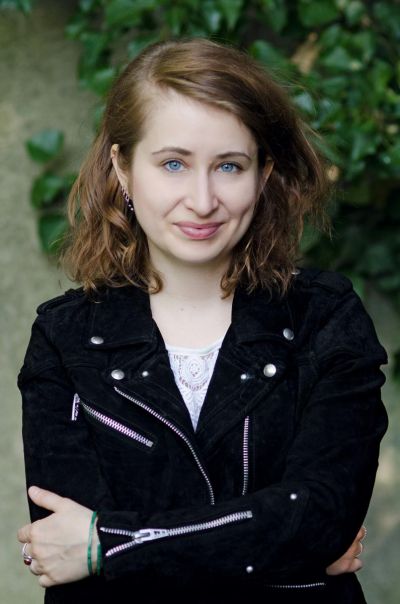The journalist Jan Aleksander Karon

Jan Karon comes from a very political family. Conversation flowed freely at home: about Stalin and communism, the Holocaust and Willy Brandt’s kneeling in Warsaw, the Polish People’s Republic, Lech Wałęsa and the freedoms of the EU. There was talk about Radio Free Europe and laughter at Radio Yerevan jokes. Above all, the discussions centred on the irony of the family ending up in Germany, the country of the perpetrators, to which Karon’s father had emigrated in 1984 and his mother in 1988, away from a state socialism that was increasingly perceived as oppressive. Both ambitious individuals, neither of them could imagine a future for themselves in their Polish homeland, especially after the ‘stan wojenny’ was imposed, the Polish martial law that de-legitimised Solidarność from 1981. A career in Poland was out of the question at the time.
This was not to say that the new start in market-oriented West Germany was easy for Mr and Mrs Karon. Especially in the early days, they worked mostly low-paid odd jobs in the catering industry or as harvest workers on vineyards. Like many immigrants, they also struggled to learn German. However, thanks to their willingness to integrate and form new friendships with Germans, who welcomed them with open arms in Rhineland-Palatinate, they soon settled in. Driven by the desire to make the most of their opportunities in their new home, the couple persevered and successfully climbed the economic ladder: she as a bank clerk, he as a mechanical engineer.
Jan Karon, who was born in Ludwigshafen in 1992 and grew up as an only child in Oggersheim, realised at a young age how hard his parents worked to give him a good life. Perhaps this is precisely why Jan Karon wanted to pursue a career in which he would not be under daily pressure, a job that would fulfil him.
So he studied what interested him most: history and political science. Scholarships enabled him to broaden his horizons by spending time abroad in Oregon, St. Petersburg, Tel Aviv, and Warsaw. He wrote his bachelor’s thesis on Euroscepticism in Poland. He then moved to Berlin without a journalism traineeship or any formal education at a journalism school, enrolled pro forma at the university there, and worked as a student assistant at ZEIT Online and ZDF. He gained experience, created a network, and was subsequently able to realise a number of projects and assignments as a freelancer, whether for online media, radio or TV.
To this day, Karon works as a freelance journalist who does not have a permanent contract with any medium. Most recently, he realised the three-part investigative series Schattenwelten Berlin for rbb broadcasting with a small team. The first series is about illegal underground raves, the bizarre world view in German rap, and a major investor who rips off tenants in his run-down properties. Together with Anja Buwert, Jan Karon pursues leads in these documentaries, conducts extensive research, and is ultimately able to present results that provide insights into the realities of life in Berlin.
Jan Karon’s work is primarily investigative. He cites right-wing extremism, Islamic fundamentalism, and anti-Semitism as his main topics of interest. In 2017, he wrote an article for DIE ZEIT about an Islamic extremist from Bremen who had been classed as dangerous. In 2018, he candidly asked demonstrators at Quds Day in Berlin why they hated Israel and documented their responses in an article for the online and print outlet Vice. Also for Vice, Karon visited the neo-Nazi festival Schild und Schwert (“Shield and Sword”) on Hitler’s birthday in 2018. This provided him with interesting insights as well as captivating photos. Karon is also increasingly interested in “organised crime”. “The topic is definitely relevant in Berlin”, he says. “On a larger scale, I am driven by one question: How do people become evil? What turns them into radicals or murderers?”

